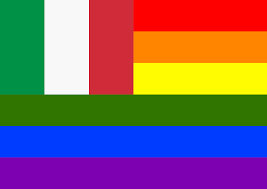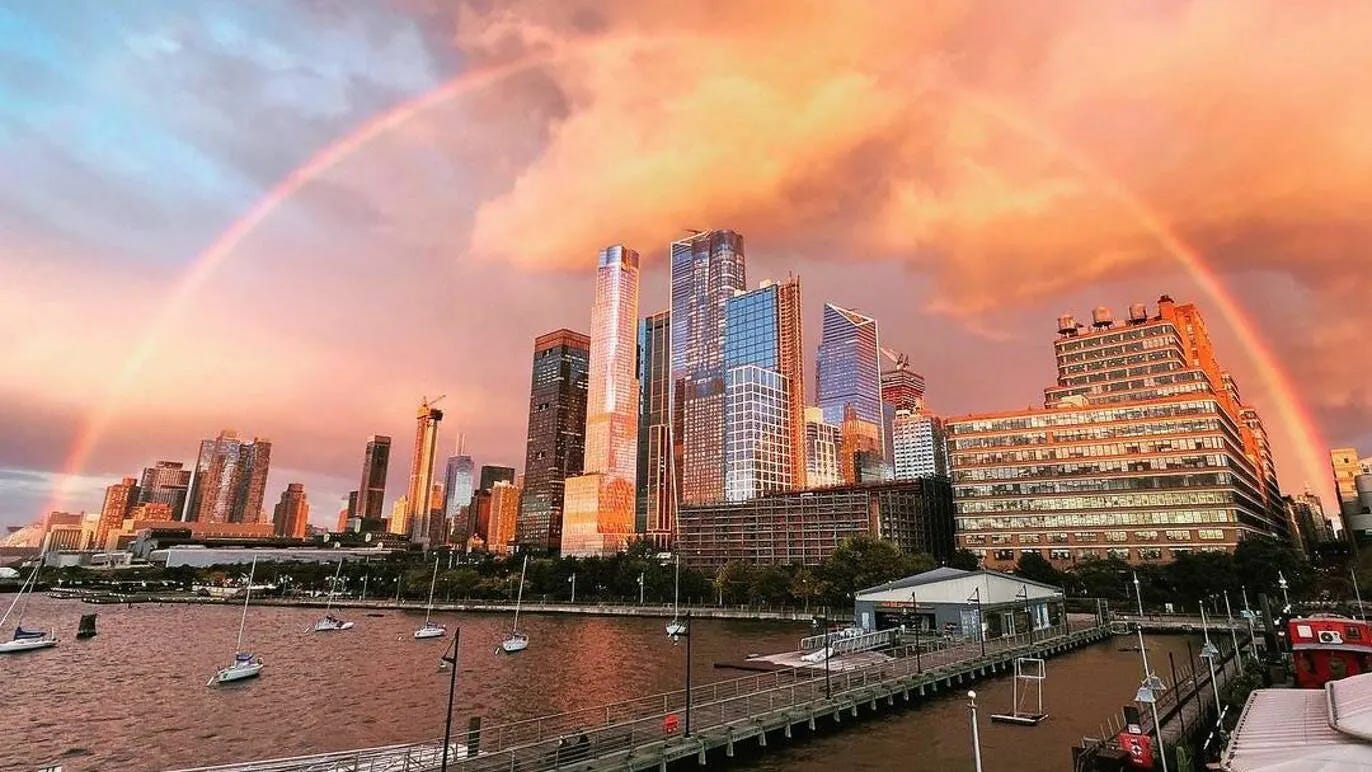Thursday Essay: Welcoming a Foreign Exchange Student During Turbulent Times
We explained to Giancarlo’s family that we felt deeply disturbed by the politics of our country. We acknowledged that their son would be living with us during interesting and difficult times.
JJ has always wanted to host a foreign exchange student. Me, not so much. I like my privacy; why would I want a stranger living in my home? However, JJ also wants to be a foreign exchange student, so I mulled it over and decided I would rather have this experience on my own turf before entrusting my child to an unknown family overseas.
When I completed the application to be a host family, I was relieved to cross it off my “to do” list. Then, almost immediately the program began contacting me through text, phone, voicemail and email. I was not prepared for this level of interaction within minutes of hitting the “submit” button. I hardly knew what I was in for. It was mid-July and the agency was eager to place fall students. They emailed and texted letters from applicants for us to review. We were on our way to the beach when I started reading the letters on my phone and, before I knew it, I found the individual I wanted to welcome into our home, a 16-year-old from Verona, Italy, named Giancarlo.
His enthusiasm and good will emanated from my phone’s screen. He loved dogs but could not have them because his mother was allergic. He enjoyed photography and reading. I showed his profile to JJ. “He’s gay,” they observed. Good. It was important to us to welcome LGBTQ+ folks.
All of the students presented to us as options were identified as either male or female. I asked Sasha, the coordinator of the exchange program, if there were any gender nonconforming teens who applied, or if we could specifically seek out LGBTQ+ youth. She explained that this information was not collected in the application. There was a hint of suggestion that such information might infringe on an applicant’s safety. I get that.
“We like Giancarlo,” I texted Sasha as the car rolled into the gravel lot edging the local beach.
“Great,” she responded immediately, “we will place a hold on him for your family.”
I started to feel like I was adopting an animal from the shelter. It was almost too simple. Peter and I were about to become a “host parent” to some kid from Italy called Giancarlo. We would then meet him over zoom, come to adore his facial expressions. When we met his entire family over zoom, we felt our connection deepen with this incredible kid who we knew, as we discussed late into the night, would bring all sorts of incredible changes into our family life.
By this point, it was apparent that Giancarlo was not only thrilled but relieved to have us as host parents. In comparison, his sister had spent her semester abroad in a small town in Missouri and found the experience trying. He was aware that he could have landed with a very different family. We sent him videos of the interior of the house and he declared it beautiful; we sent him pictures of the dogs, who he called “pretty” and “lovely.” At one point in our exchange he responded, “I CAN’T WAIT!!!!!!!!!!” heart-eyed emojis rising like a bouquet of balloons from my phone’s screen.
In our first zoom meeting, Giancarlo had listened to me butcher Italian in my attempts to converse, and then when I pronounced his last name with an extravagant emphasis on the correct syllables, he nodded. I knew the right way to pronounce his name, and he told me that his parents would appreciate my attempt to speak to them in Italian when I met them.
Mi prenderò cura di tuo figlio come se fosse mio figlio.
I will care for your child as if he were my own.
Giancarlo's mother, a physician, kept mostly to herself as, Giancarlo had explained, her English wasn’t great; his father, a human resources director for a major European company, was gracious, humorous, patriarchal in a charming and generous way (not in the overbearing and condescending way of our countrymen), and the entire conversation felt like a meeting of minds and souls. We were overjoyed. Later, Peter and I talked about how funny it was to see Giancarlo get bored by his father’s speeches, signs that a disaffected teen lived somewhere in the ever-enthusiastic affect he presented as future host-son.
We explained to Giancarlo’s family that we felt deeply disturbed by the politics of our country. We acknowledged that their son would be living with us during an interesting and difficult time. We told them JJ is transgender, and we relayed our fears. When Peter mentioned that I did some work on a DEI committee at JJ’s school, Giancarlo’s father lit up and shared that DEI initiatives were crucial to the vision he brought to his own job.
After we all hung up, I texted Giancarlo to say how much we loved his family. We didn’t just love meeting them. We loved them. He texted back and said, “They loved you too.”
I needed Giancarlo. I had not been proud of my country for years. But now I had Giancarlo with whom I could share the Gardener Museum in Boston, lobsters rolls in Wiscasset, everything about NYC, and the iconic marble buildings in downtown Washington, D.C., the city in which I was raised.
Soon after we dropped off of the zoom call with Giancarlo’s family, we got word Donald Trump had been shot. I barely raised an eyebrow. After watching the debate a couple weeks earlier, I’d turned into the disaffected voter I swore I would never become.
“How do you feel about coming here,” I texted Giancarlo, “after today’s event? This is what we call a shit-show.”
I shoved the phone in my purse as we emptied ourselves out of the car and strode into our favorite oyster bar, where I proceeded to order a cocktail called “The Walking Dead.”
When I woke the next day, Giancarlo had not responded. That afternoon, still no sign. It made me anxious. He was six hours ahead. Was he sleeping?
The next day, a text. “To be honest,” he admitted, “I am scared.” He proceeded to explain that it is very difficult to obtain a gun in Italy, and that he had been shocked by the response of Trump’s supporters. What shocked him? “I think that I was shocked by their reaction and also by Trump’s reaction after the event because it almost seemed like this was an element of strength for them,” he responded.
I rushed to assure him that he didn’t need to be scared. That I could keep him safe. My fingertips began typing and then stopped—this was not a promise I could make in good faith.
How could I say such a thing given the school shootings in our country? The gross and casual violence inflicted upon our BIPOC neighbors by our law enforcement?
I had told Giancarlo’s parents, “I will care for your son as if he is my own child.” My accent sucked, but they had nodded appreciatively.
“He’s not coming,” I said to Peter.
“No, he’s not,” Peter replied, reading the text.
I was heartbroken.
More than that, I was ashamed. I lay down in my bedroom and closed my eyes.
I was ashamed a 16-year-old kid who had wanted nothing more than to live in the United States was now hesitating because the violence in our country scared him. A child.
I realized I’ve long been ashamed of our country. I've spent years trying to explain to my kid why our country is the way it is. JJ was in preschool when Eric Garner was murdered. I remember telling them about it, and their absolute response: “That is wrong.”
I knew I couldn't blame Giancarlo for deciding not to come to the United States because he was fearful for his life. I could not blame his parents for deciding that they would not risk their child’s life by sending them here. I assumed the agency would come right back at us within minutes with another student to whom we could open our home.
But I wanted Giancarlo. To my mind, he was already my son
And then, Giancarlo texted, “I talked about the attack with my sister and parents and we agreed that this is inevitably an element of your country, but this won’t make me stop wanting to come to the US.”
He was coming!
Mi prenderò cura di tuo figlio come se fosse mio figlio.






Lovely piece. My youngest daughter has recently been quite distraught over Trumpolitics, some racist and homophobic talk at work , and the general state of world affairs. I find myself in the uncomfortable position of needing to provide hope. She is an immigrant of color, which often leaves me quite scared for her safety. Still, I pointed out that it was only 12 years ago when she and her sister held signs supporting gay marriage in Maine on the corner of High and Congress Streets - and now it is legal. Last evening at the dinner table, she said, "I am super excited about Kamala." My daughter is an introvert and only recently asked for my NY Times password. It was awesome to have her be the one to give us a little hope.
Wow, I was disappointed along with you. My heart sank a little. When he said he was coming anyway, I was so relieved & excited for you. I hope you're having a good time with Giancarlo.